Terrorists Sell Looted Antiquities on Facebook
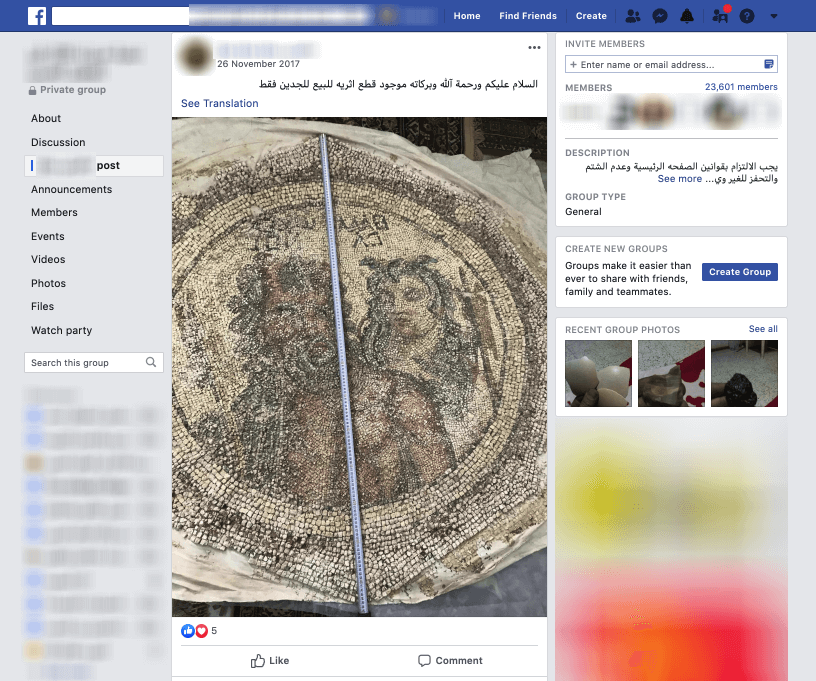
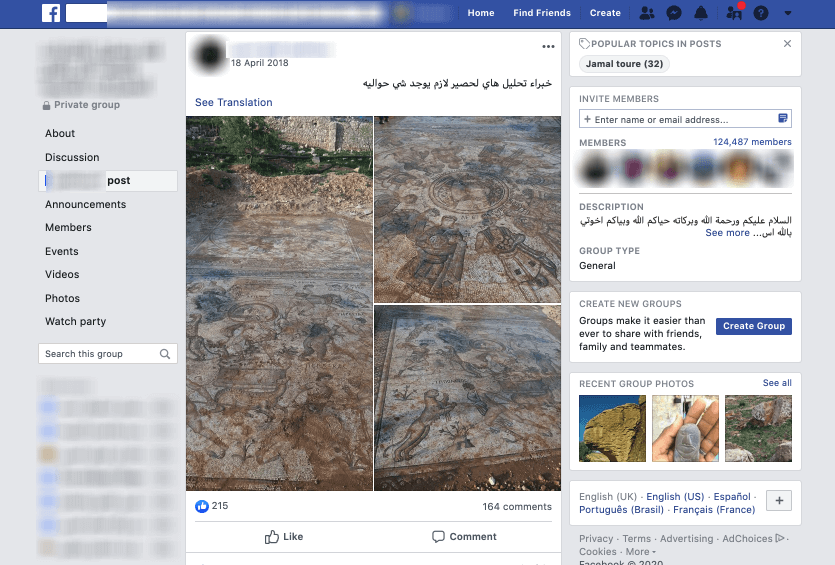
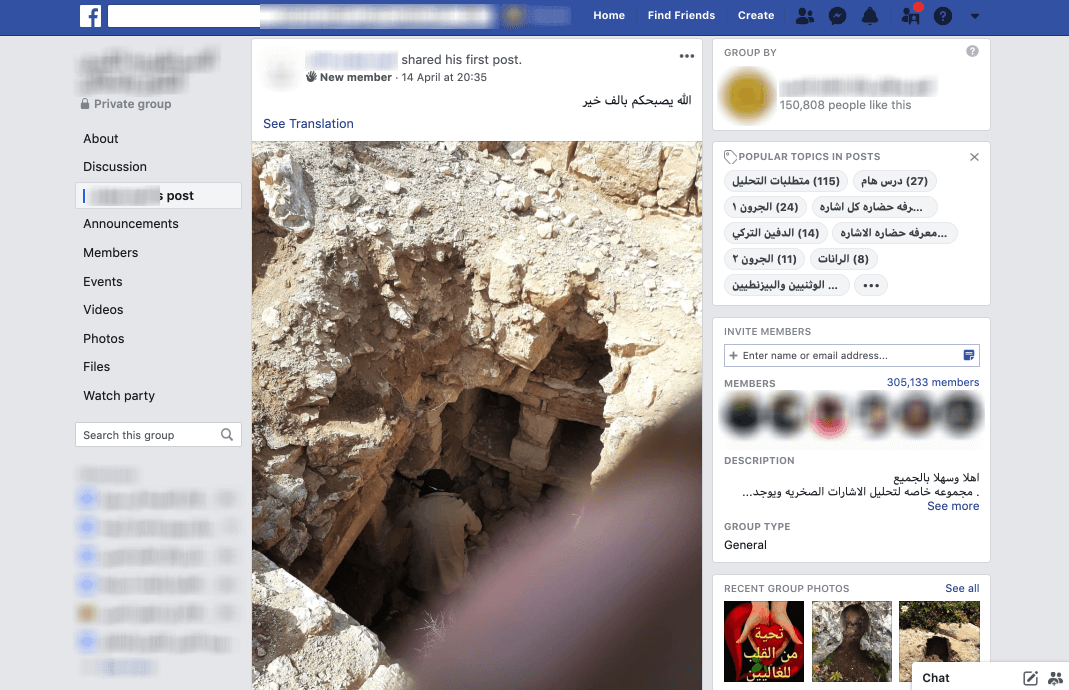
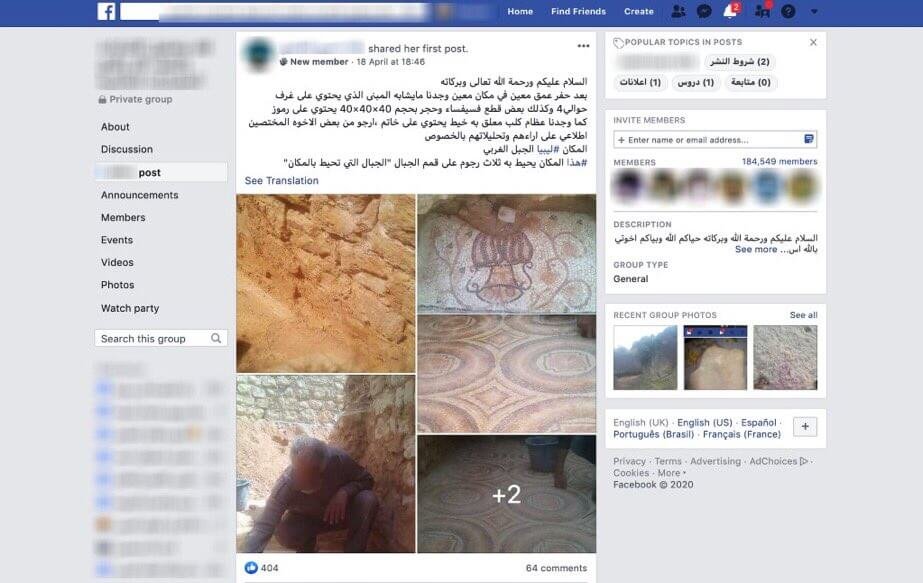
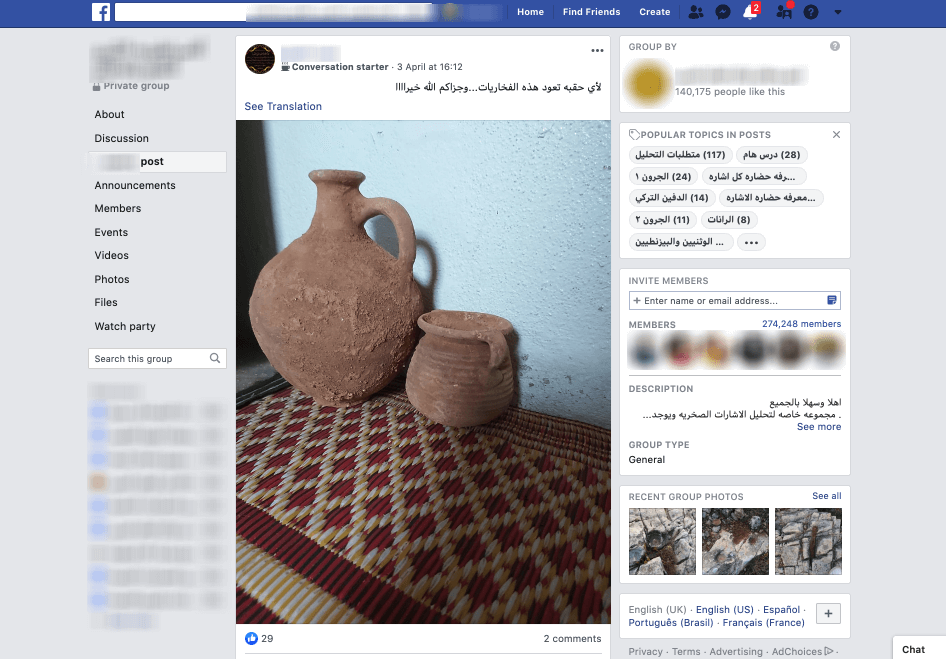
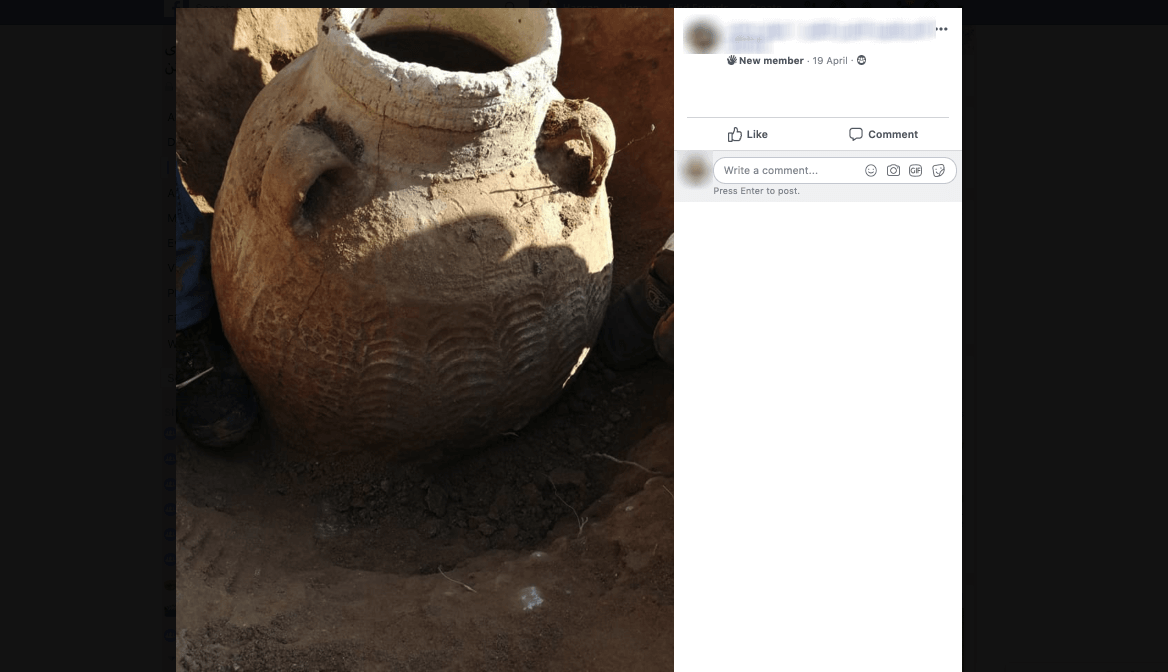
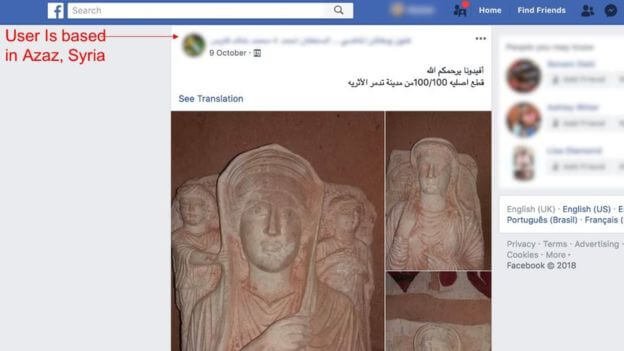
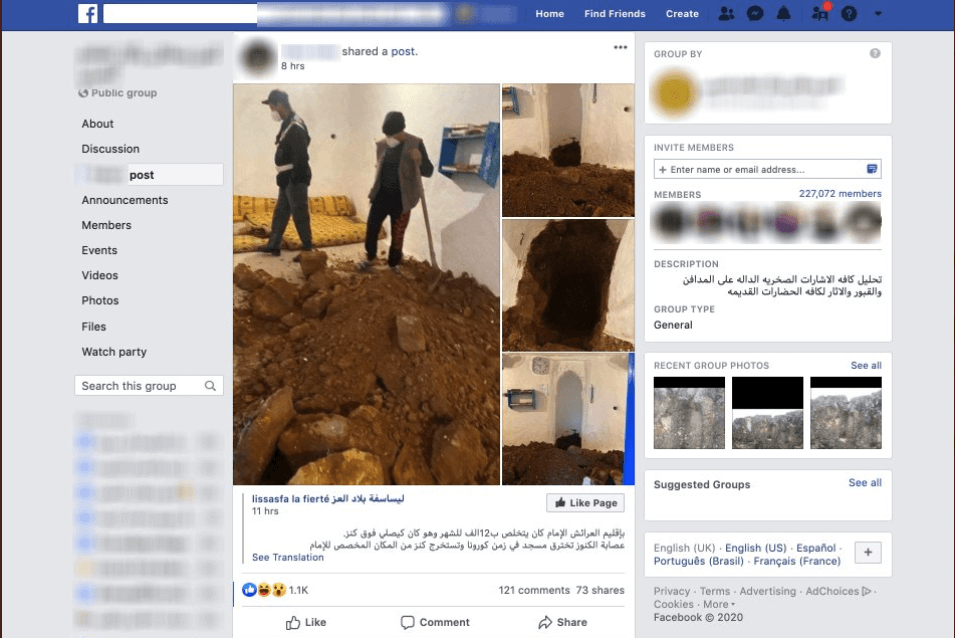
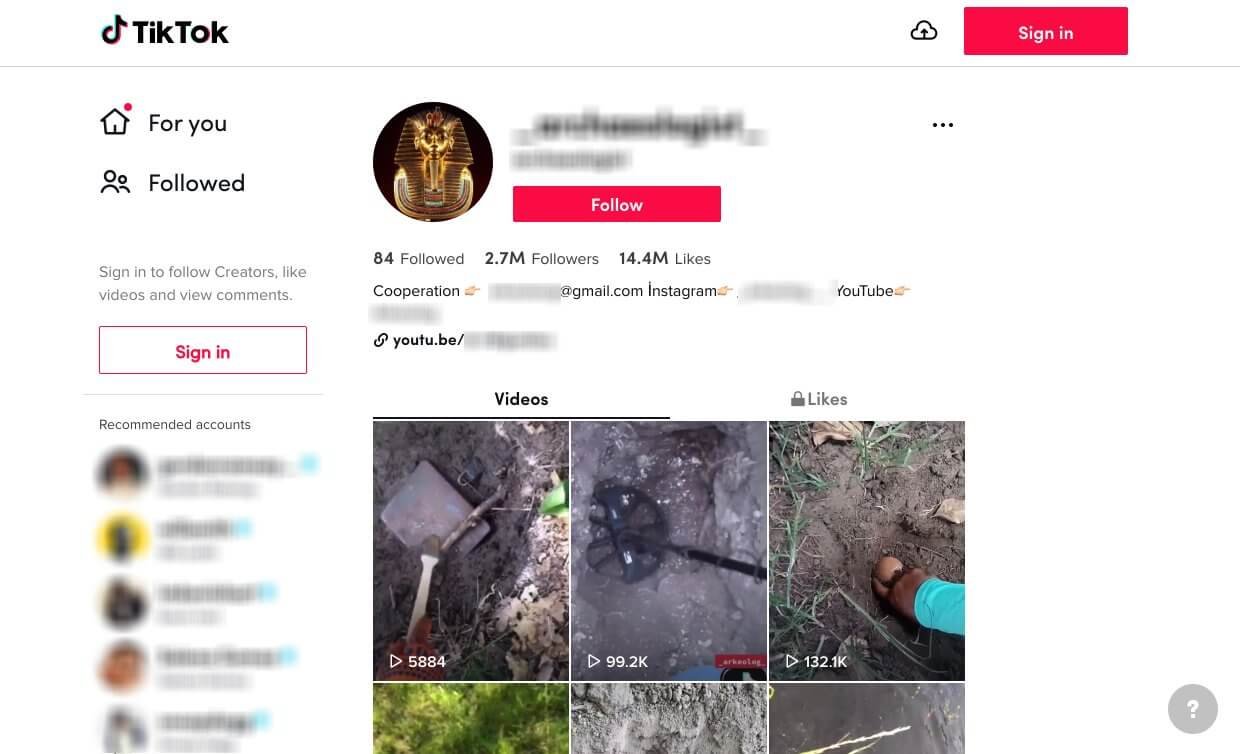
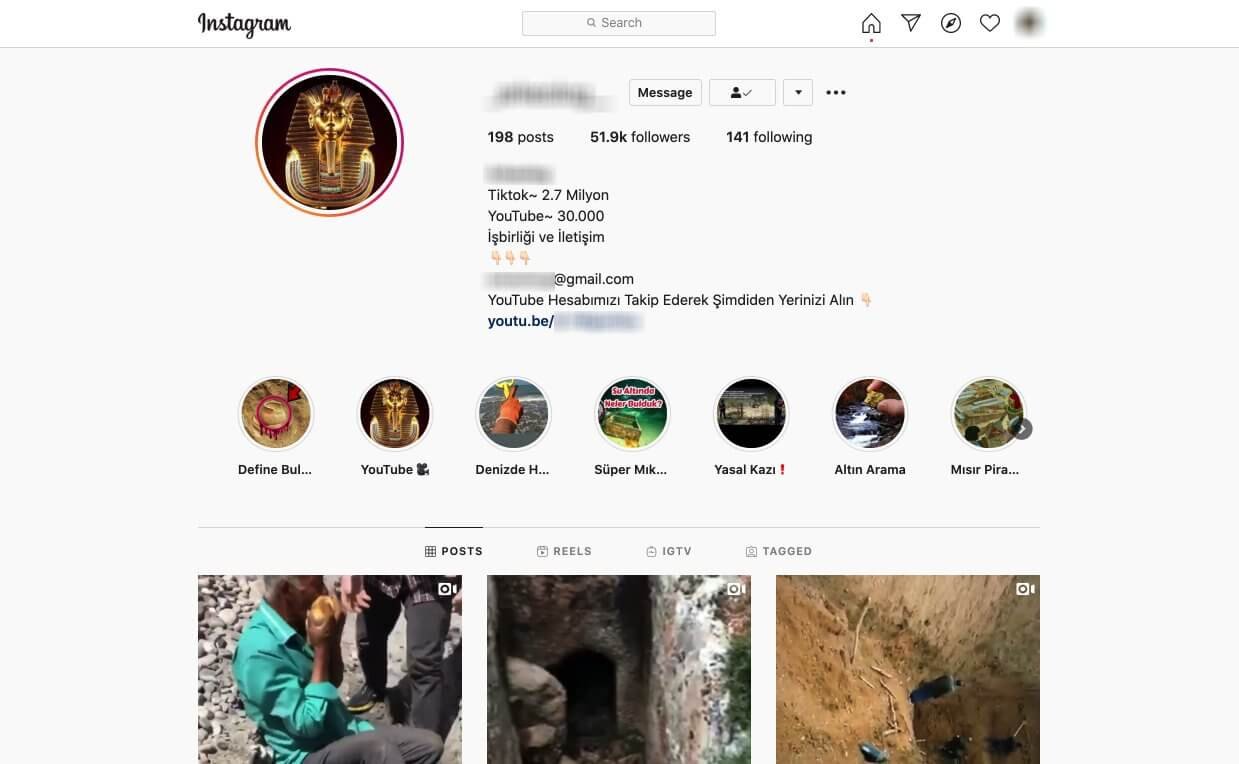
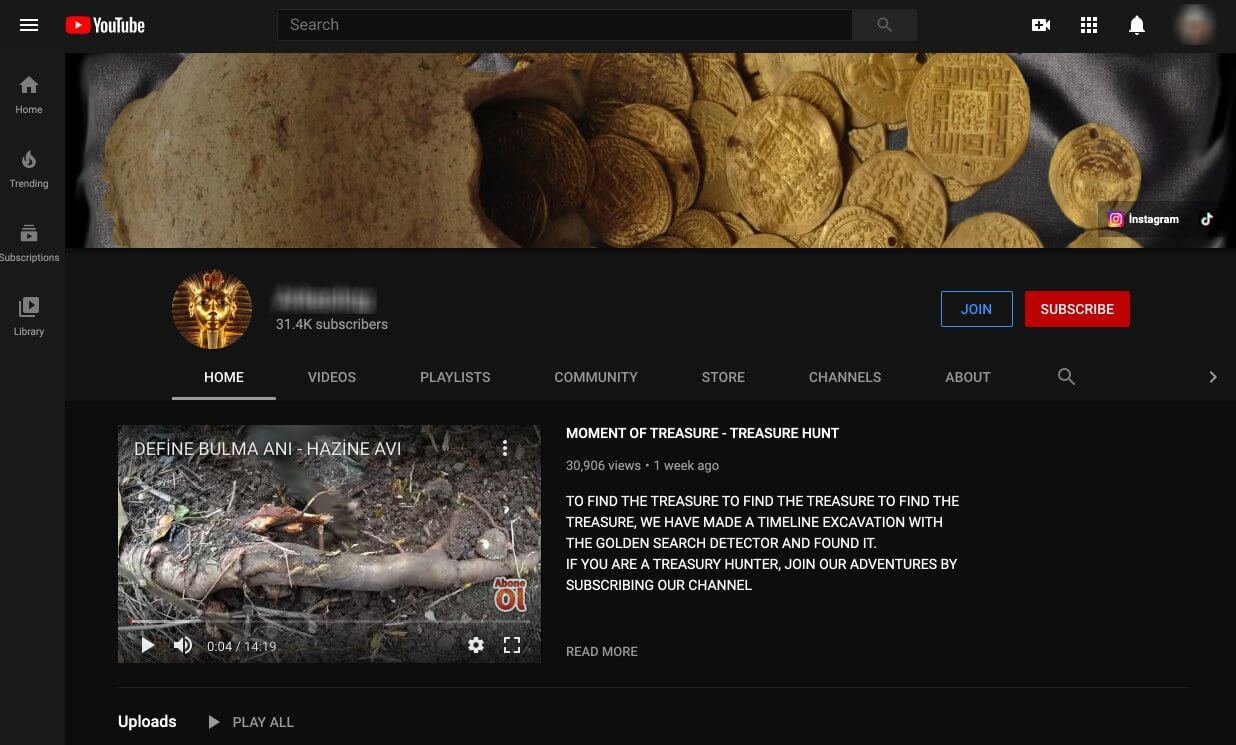
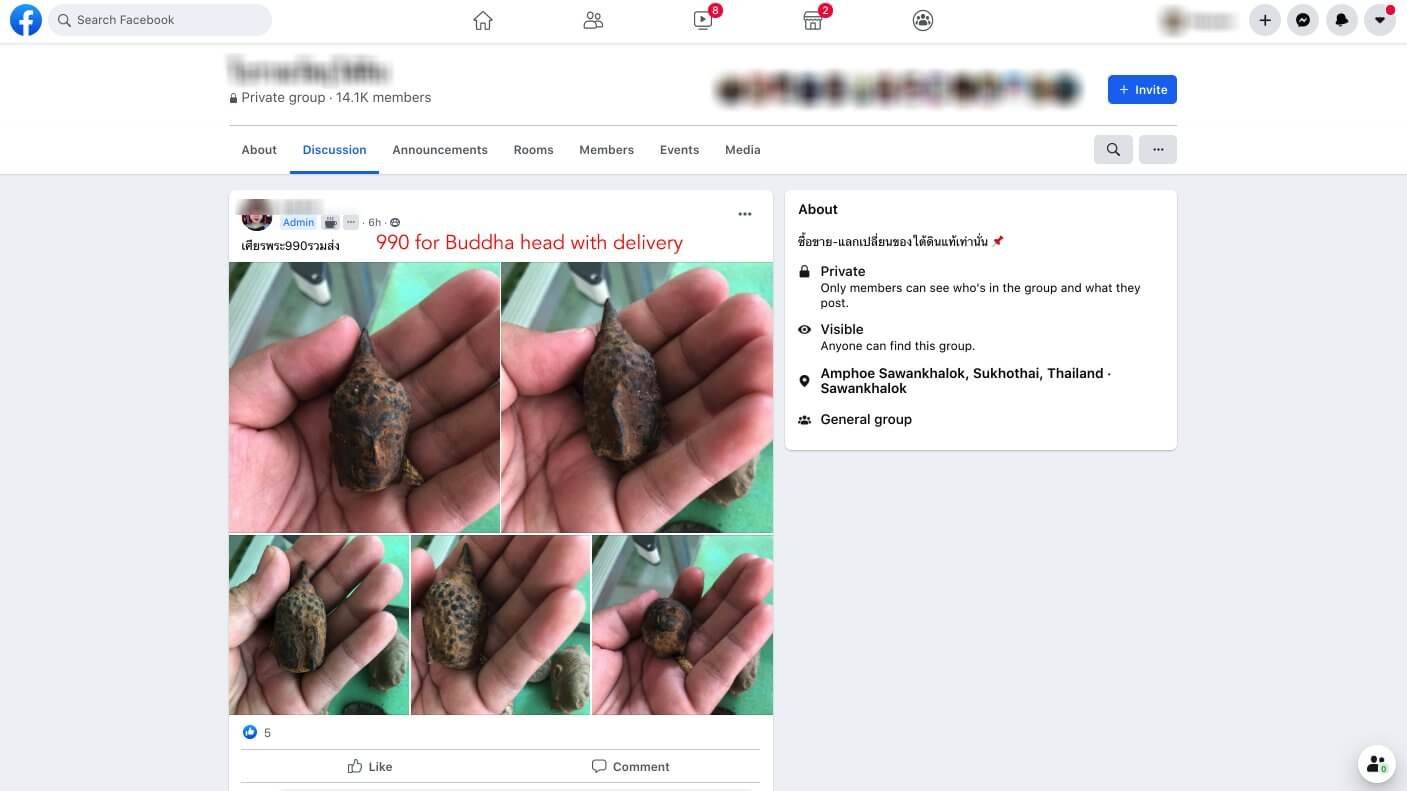
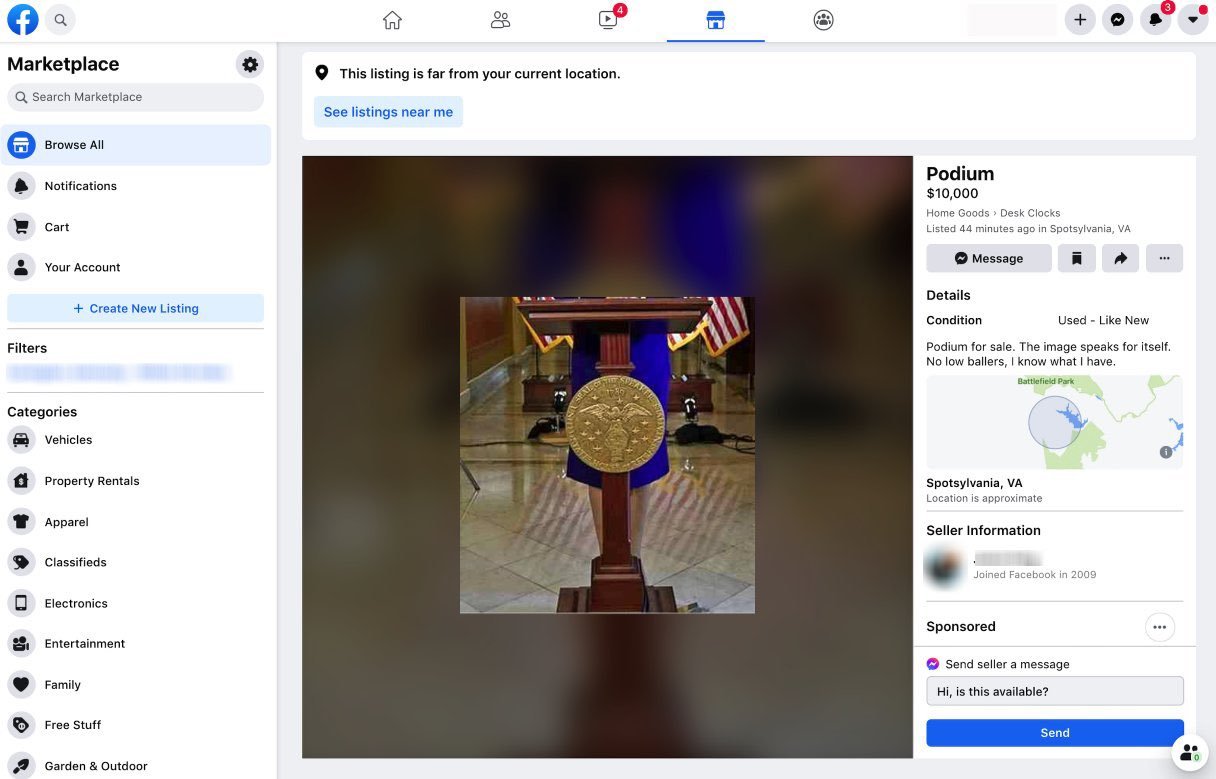
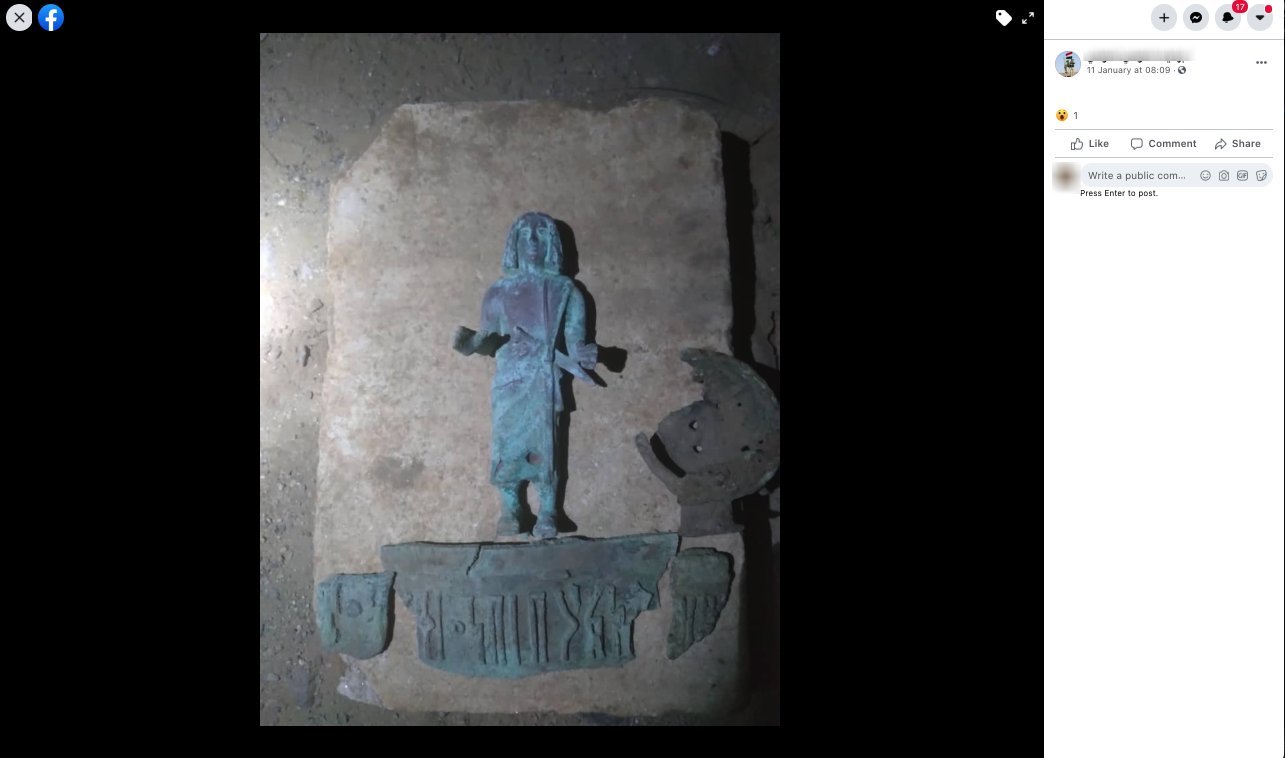
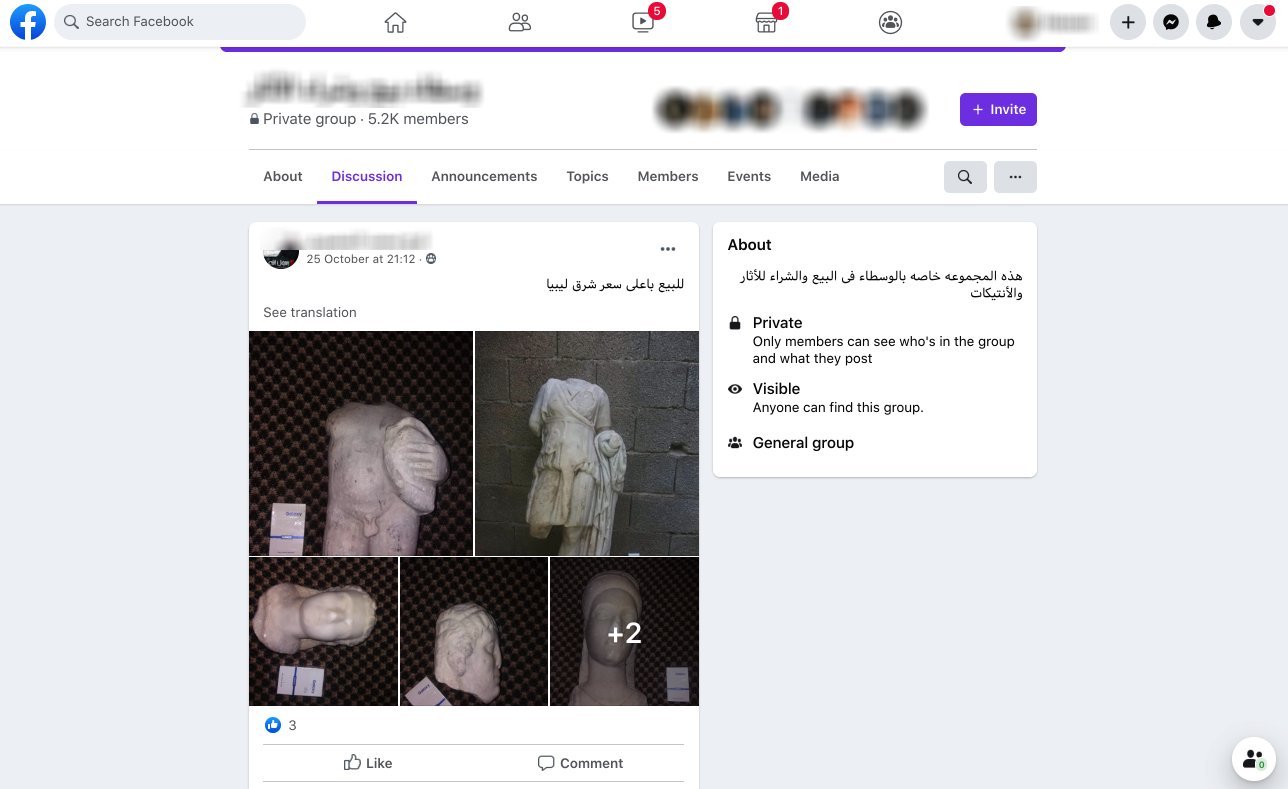
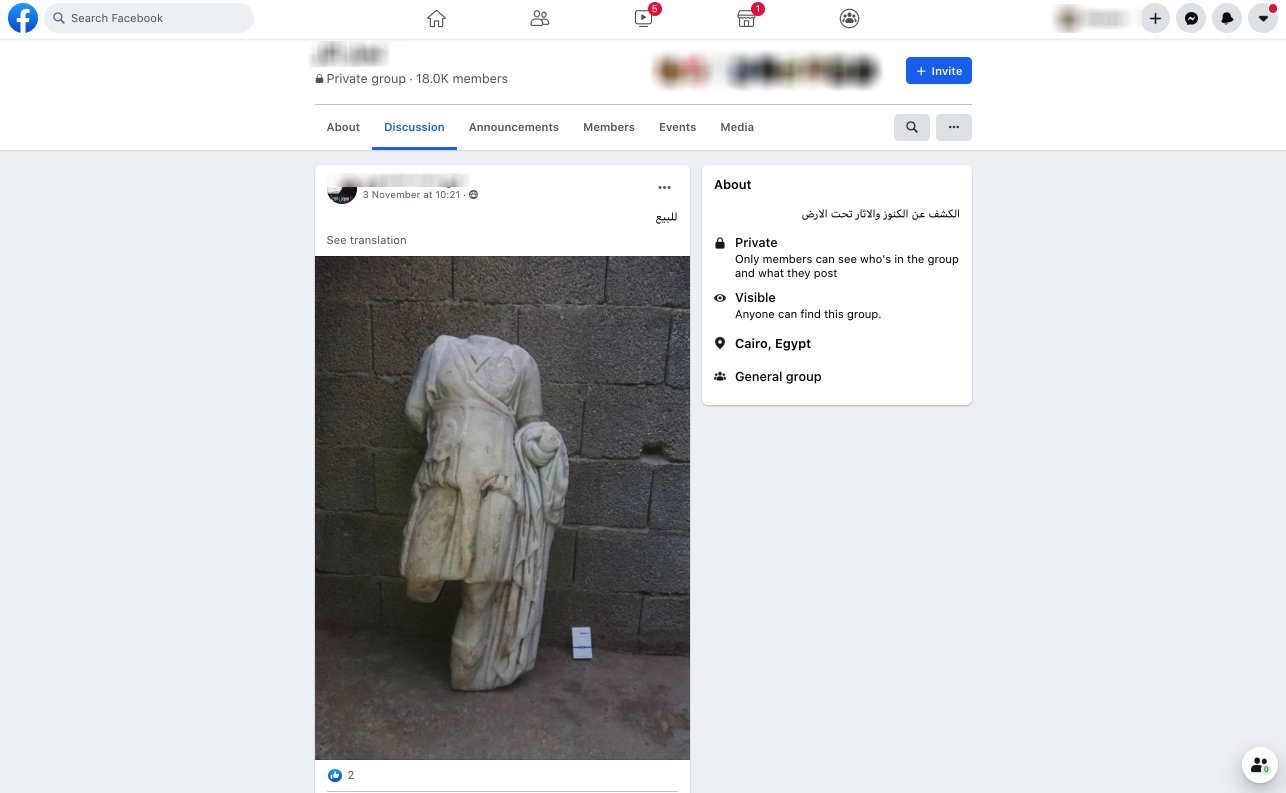
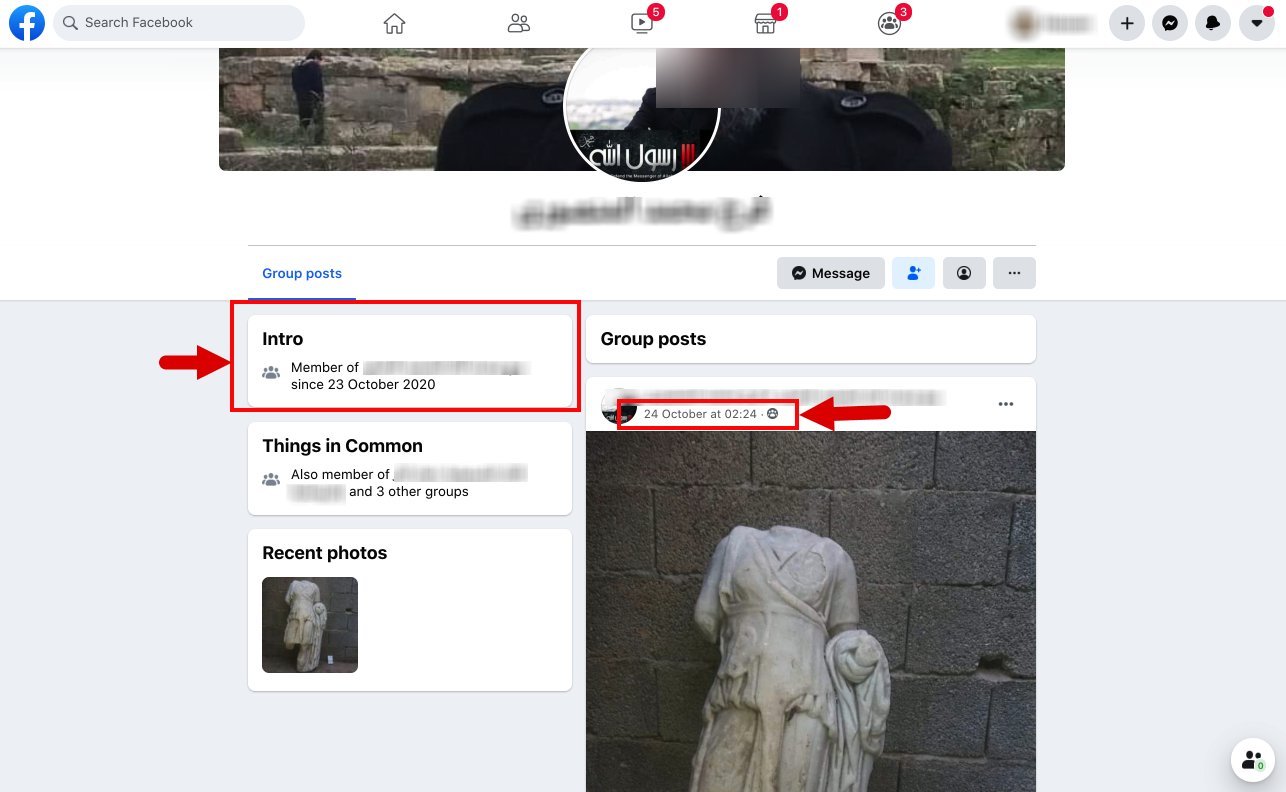
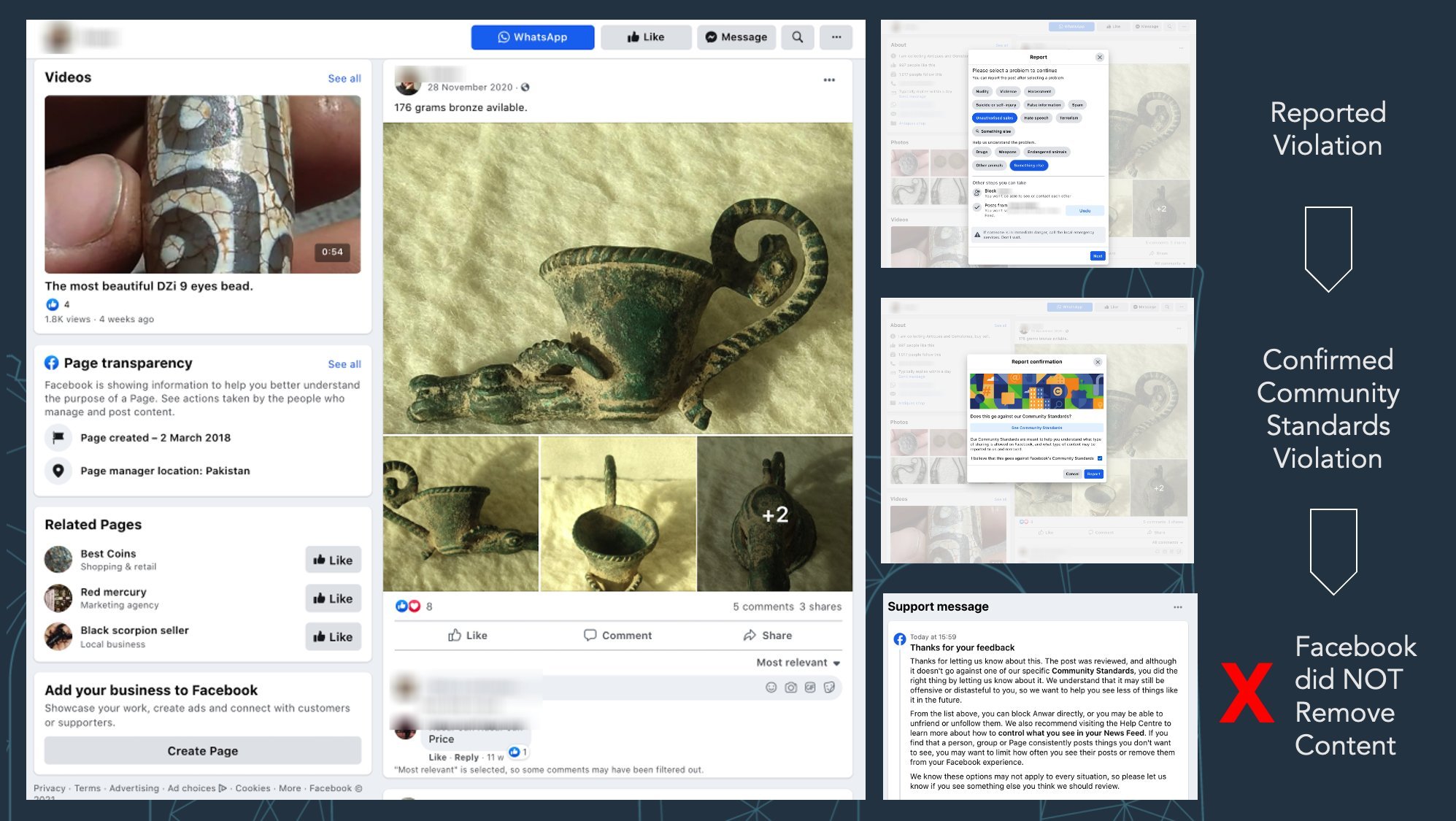
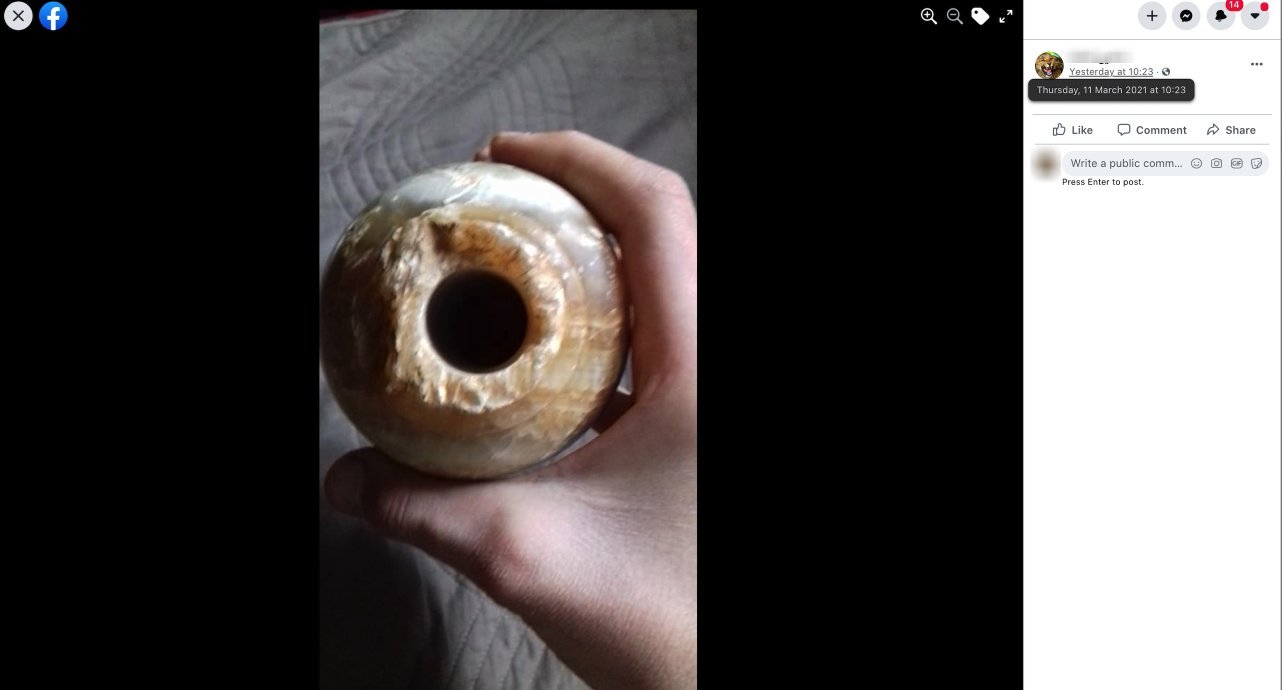
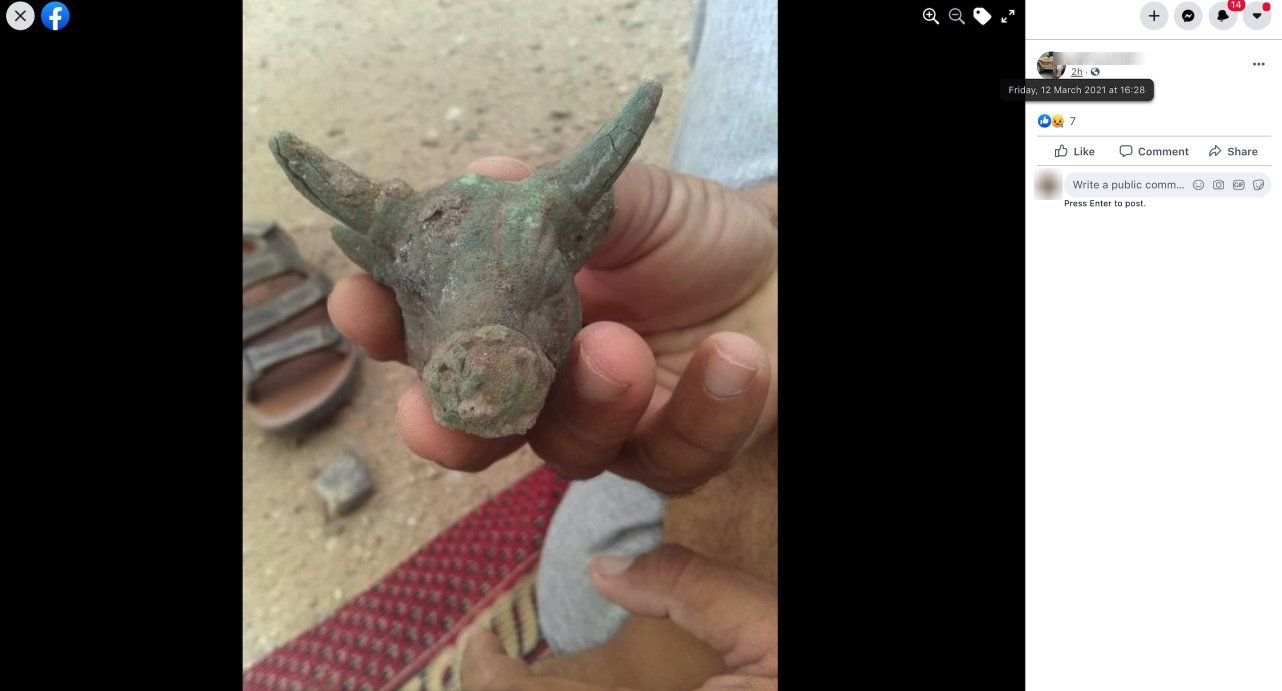
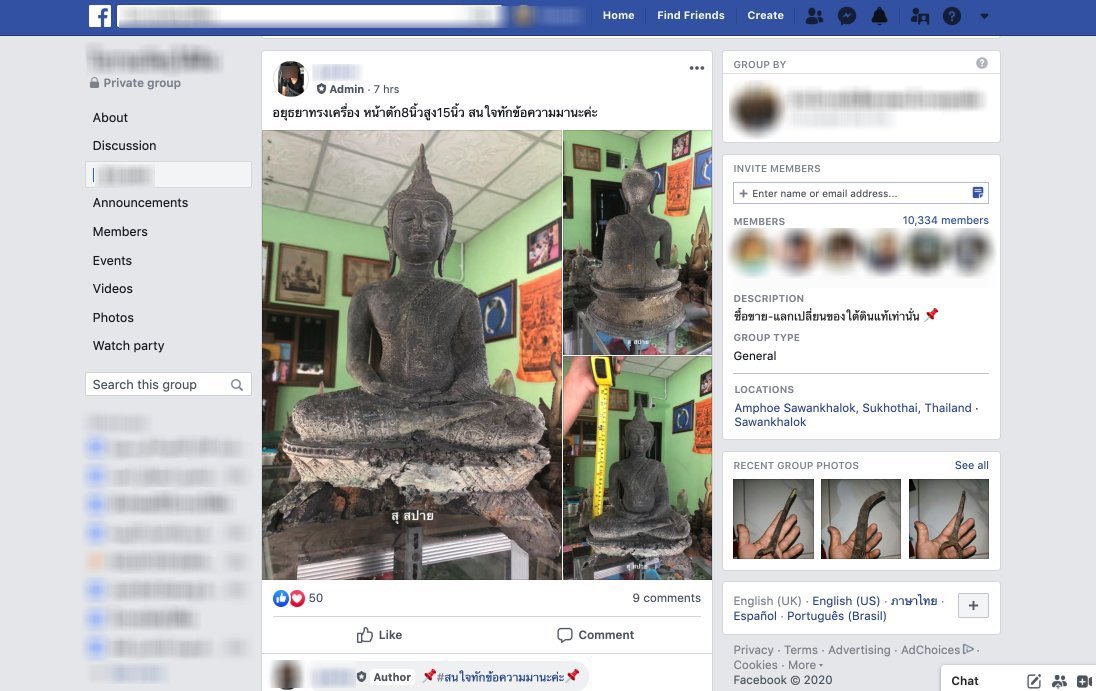
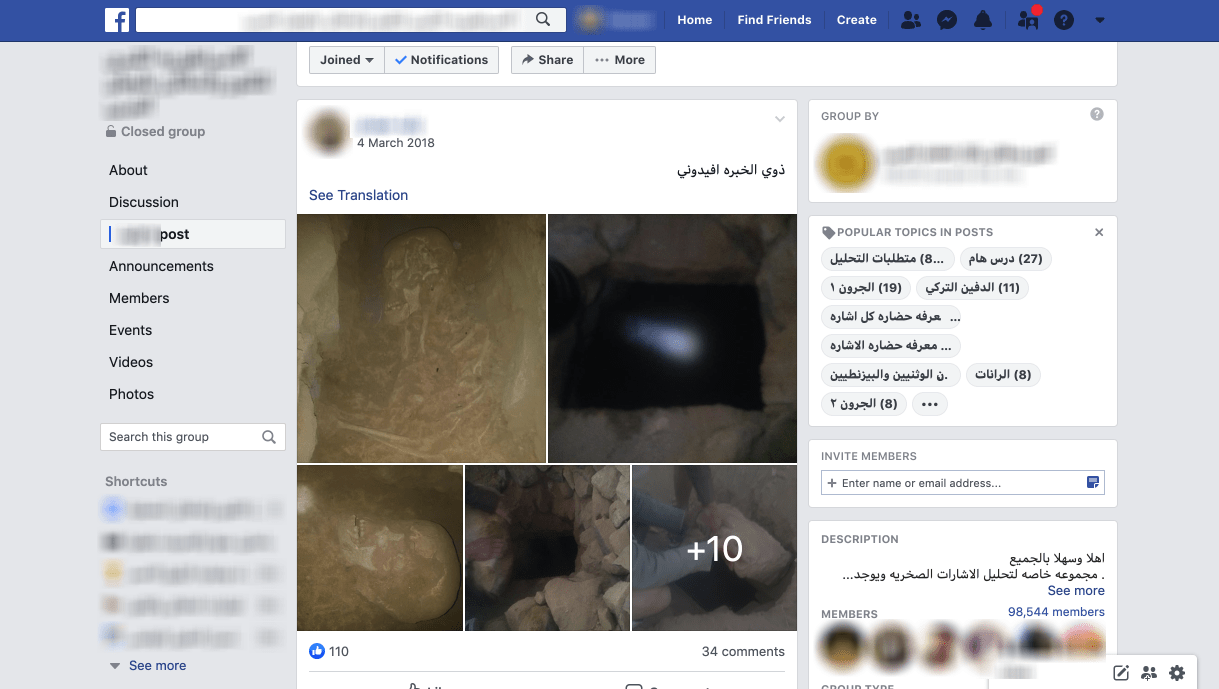
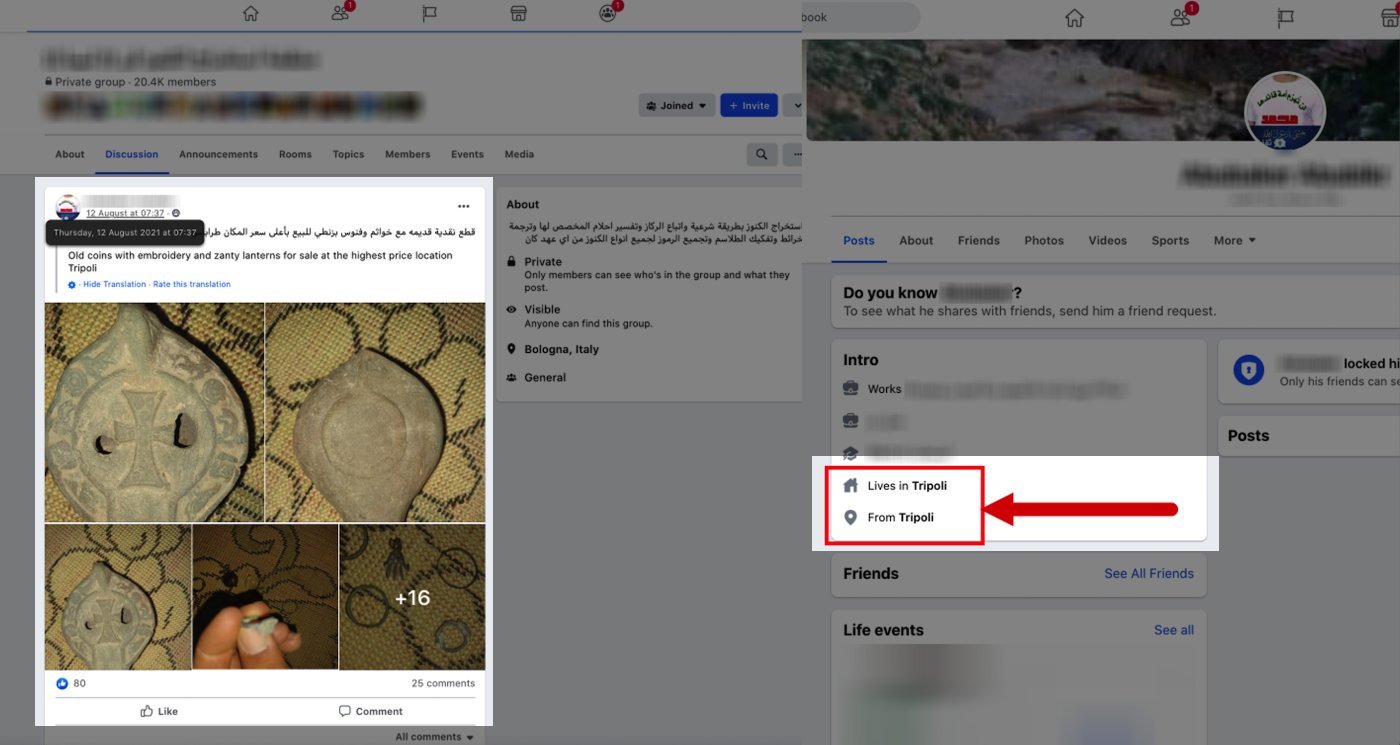
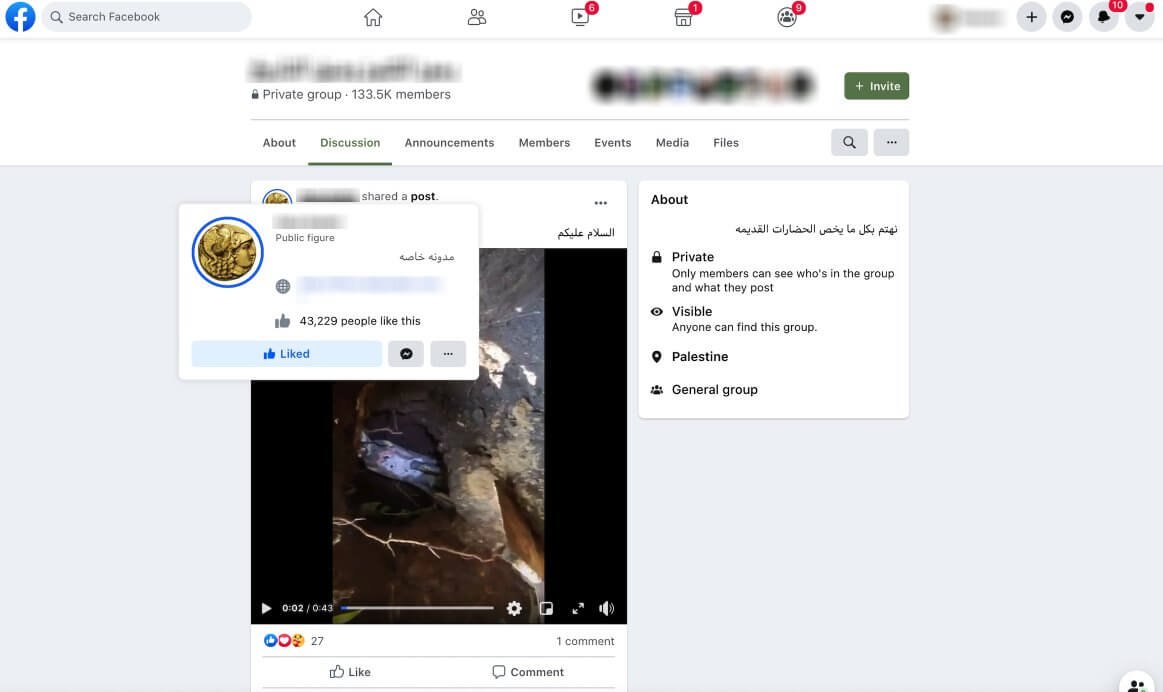
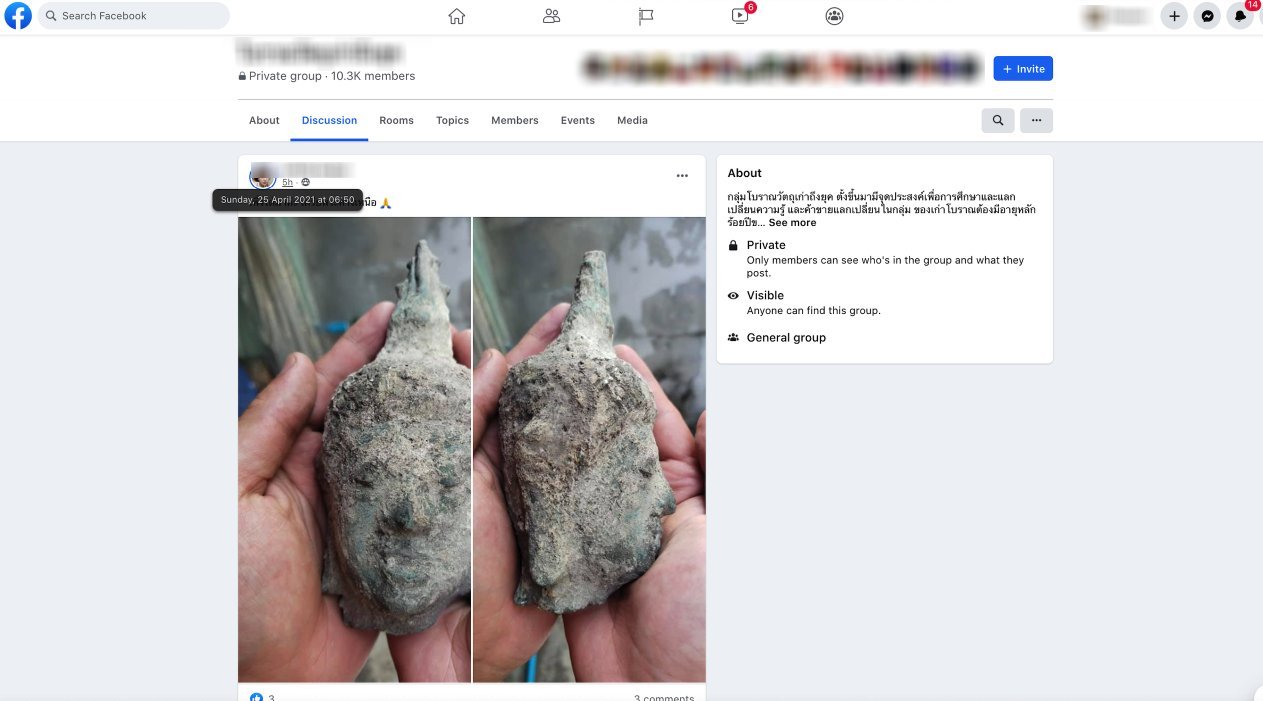
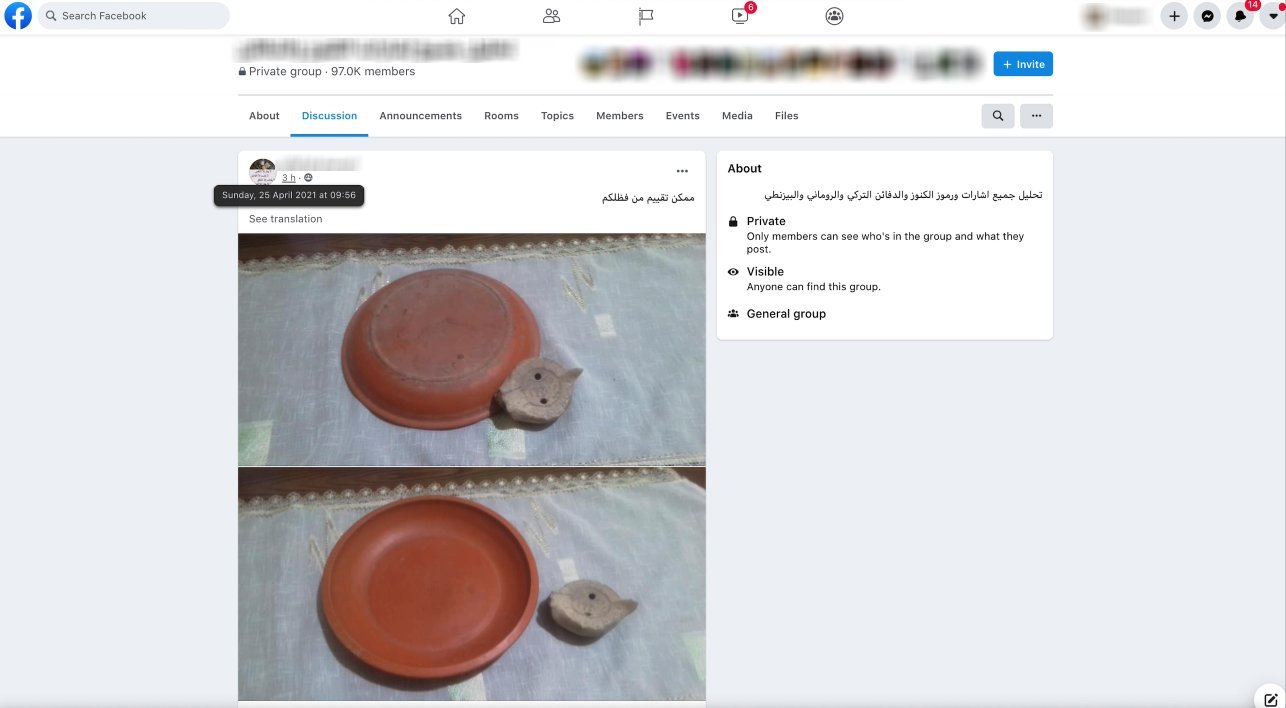
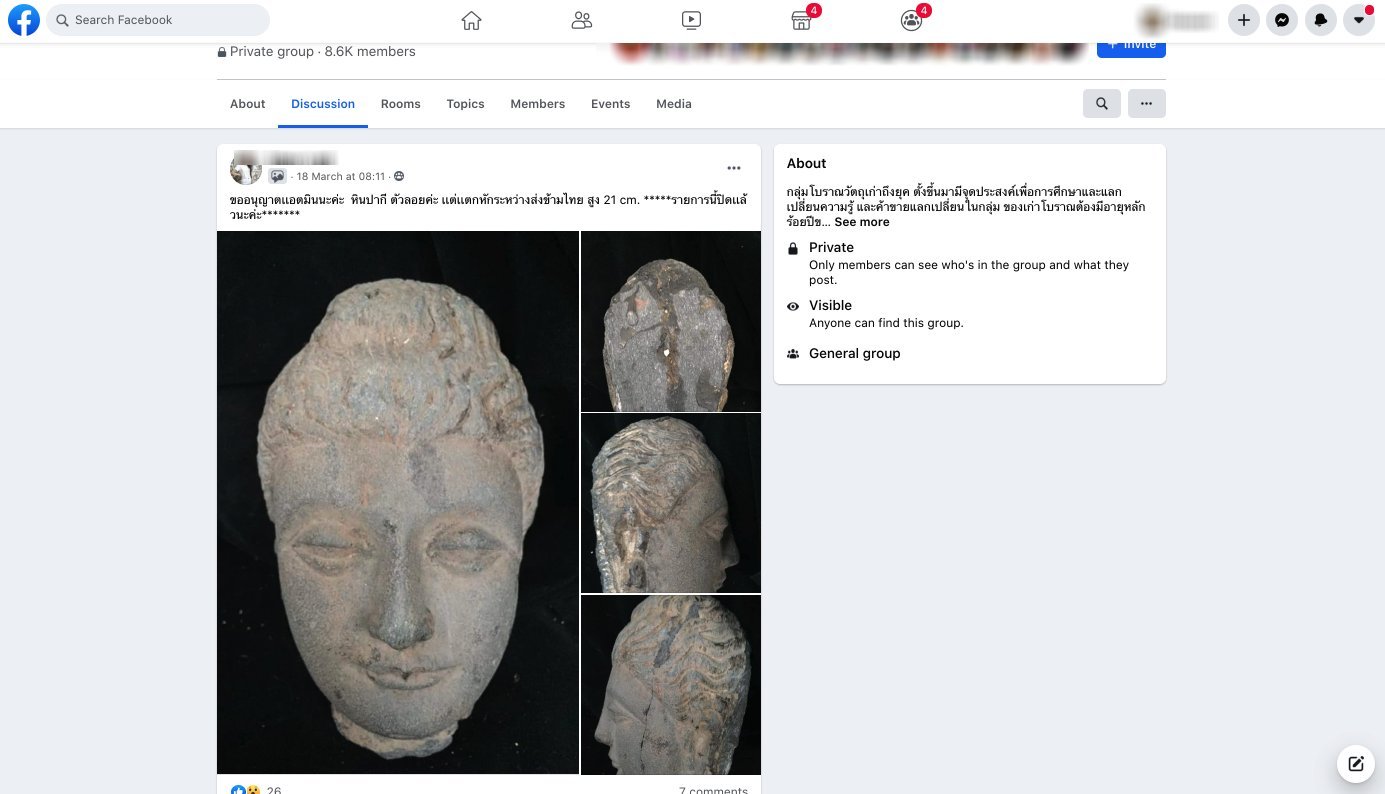
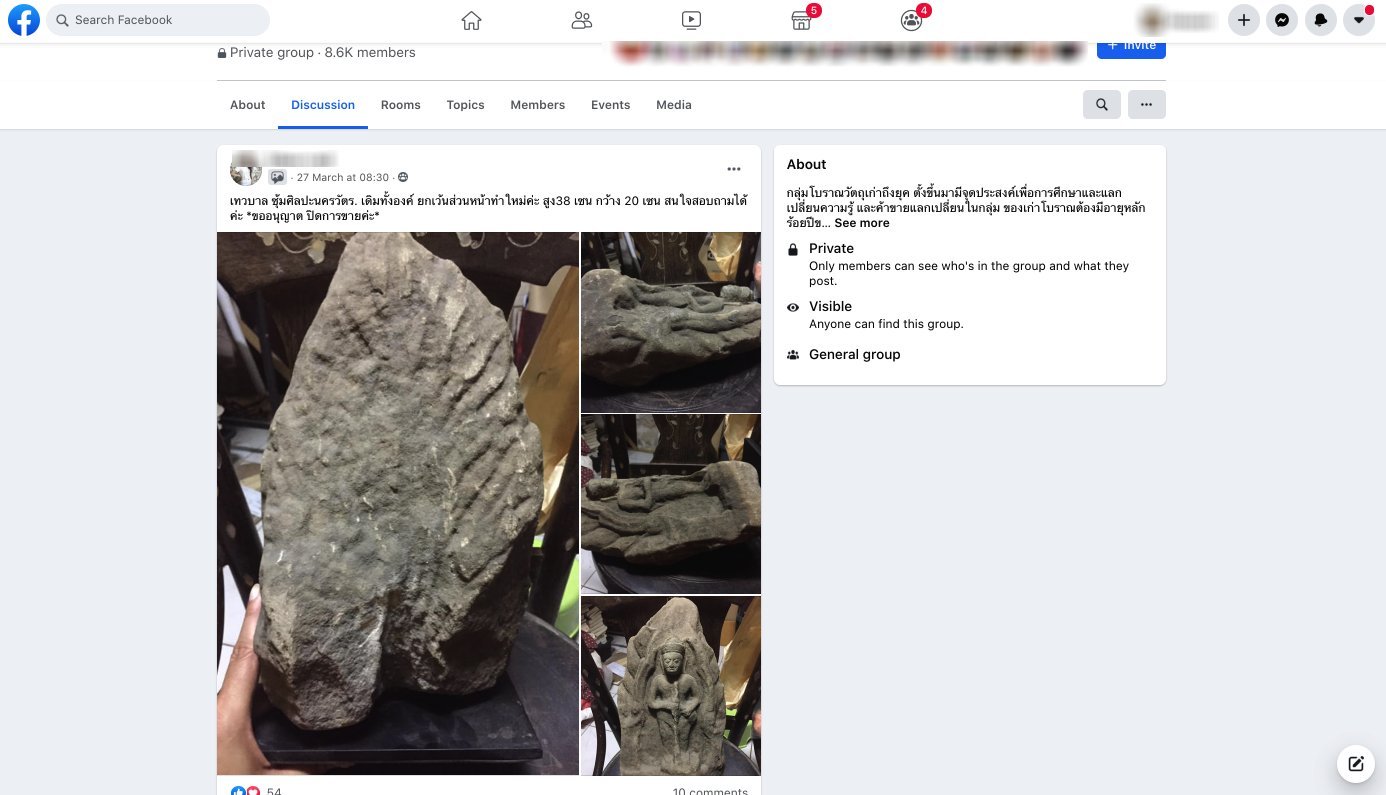
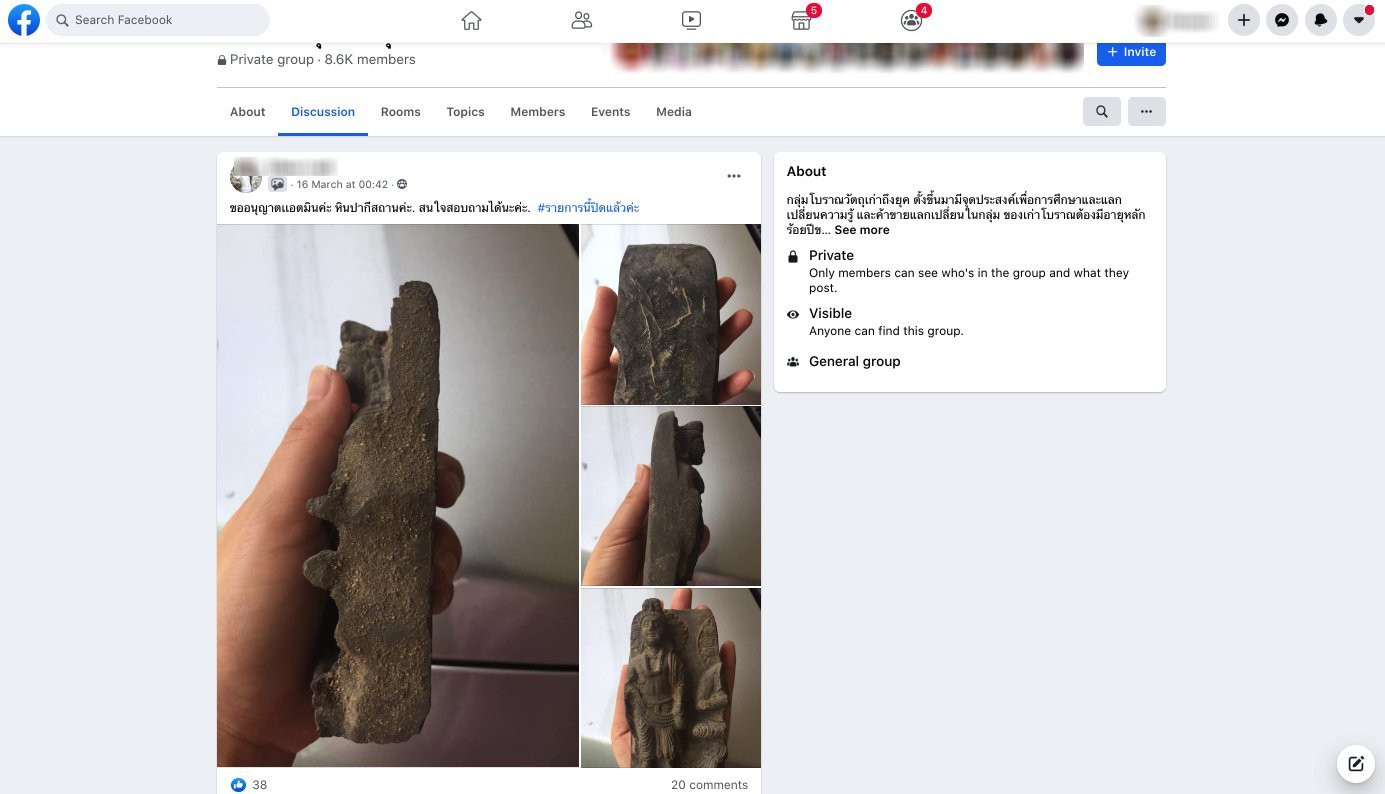
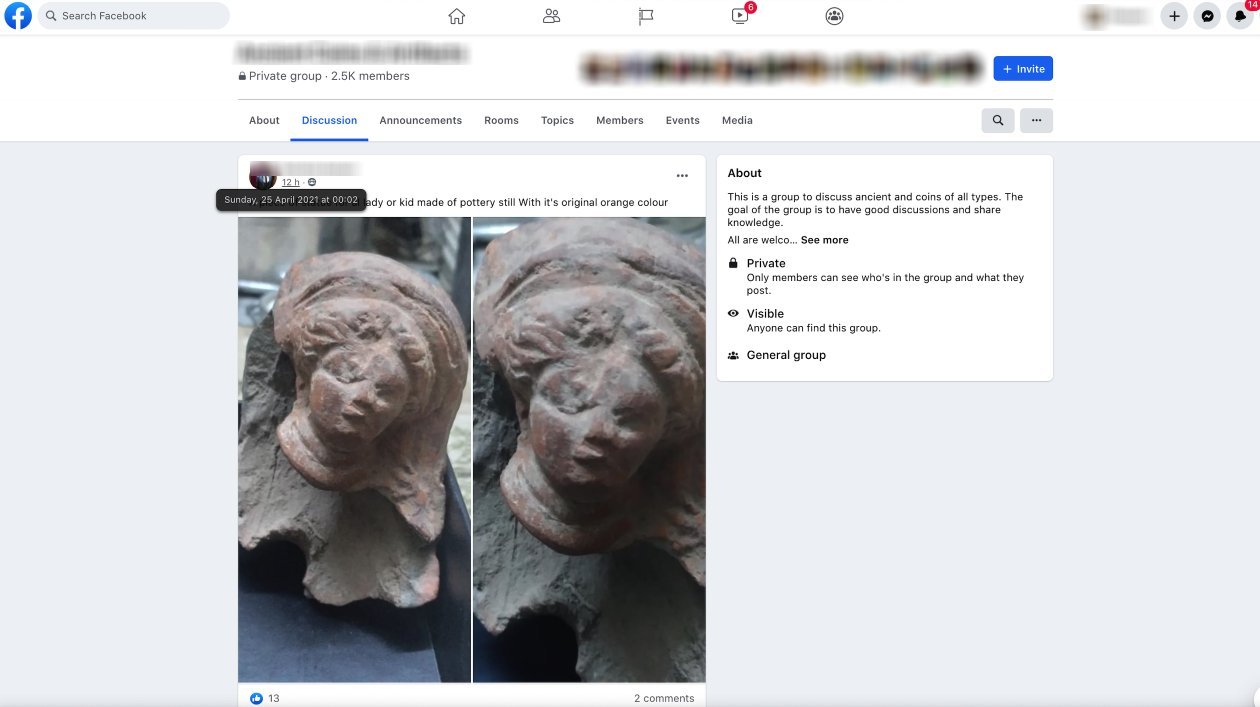
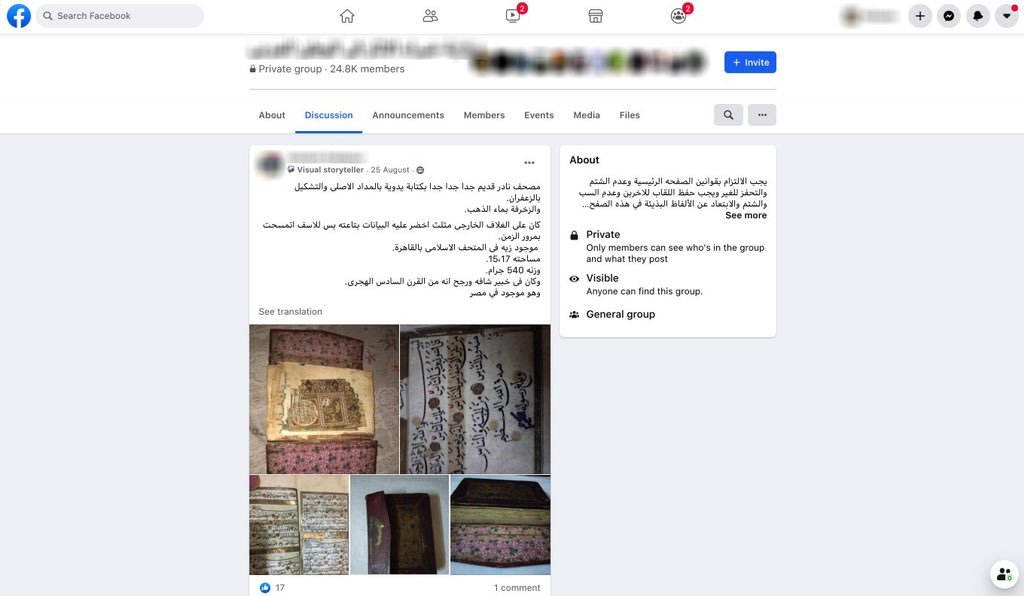
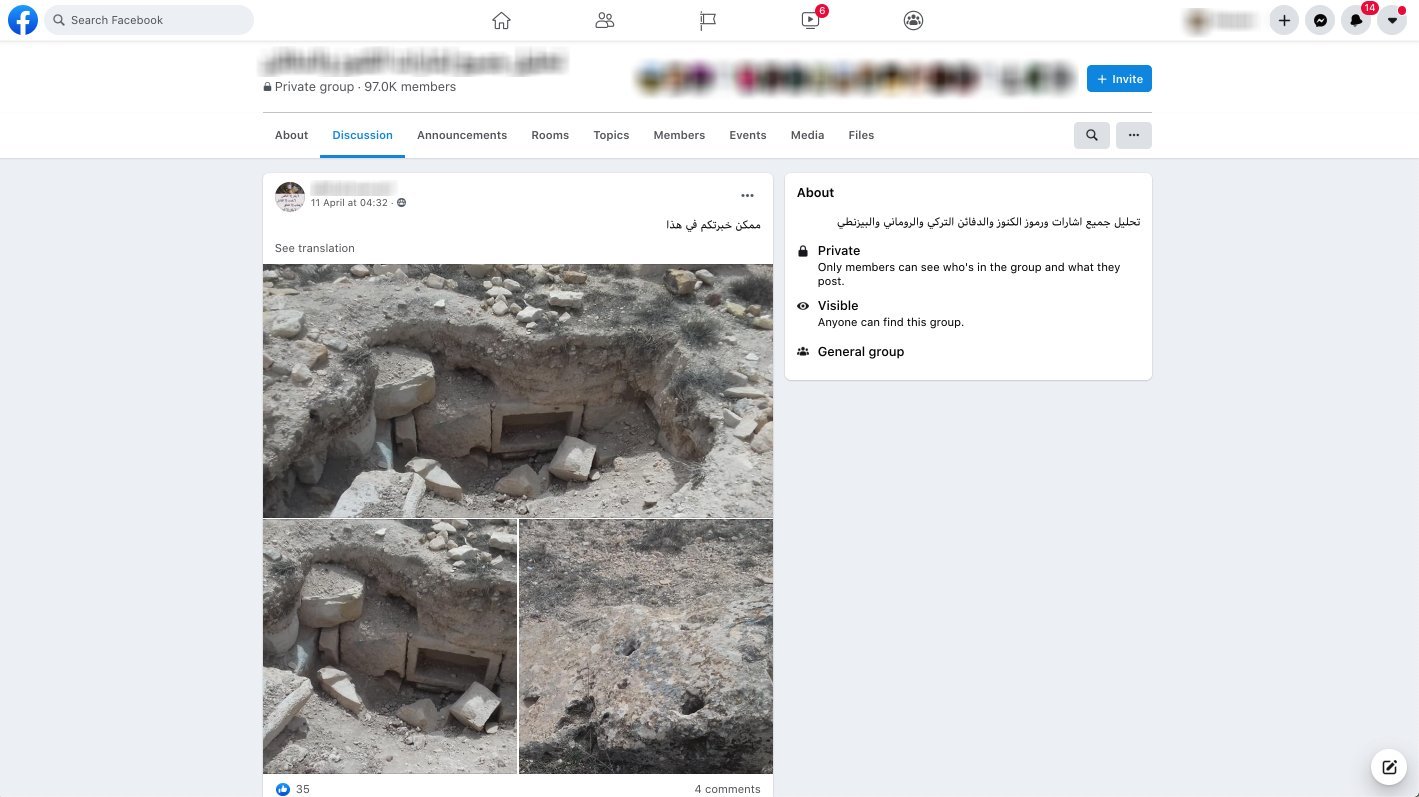
Social media platforms, in particular Facebook, have facilitated the explosive growth of the illegal antiquities trade. A global network of traders, traffickers, and even terrorist groups use platforms like Facebook and WhatsApp to buy and sell looted antiquities.
The problem is particularly severe in conflict zones like Syria, Libya and Yemen, where ancient civilizations once thrived, and where there’s an abundance of ancient sites to excavate and plunder. Under the 1954 Hague Convention for the Protection of Cultural Property in the Event of Armed Conflict, this illegal trade is a war crime.
ACCO member The ATHAR Project is tracking more than 130 Groups on Facebook, with a total of more than two million members, where looted artifacts, including coins, mosaics and even mummies, are marketed and traded. Members of these groups are a mix of average citizens desperate for money, shady art brokers and violent extremists.
Monitoring social media for looted antiquities offers a rare opportunity for activists and law enforcement to prevent the plunder of ancient heritage. ATHAR’s ground-breaking 2019 analysis of 95 Facebook Groups involved in antiquities trafficking found group admins and moderators to be highly interconnected and global.
The ATHAR study identified almost 500 administrators managing 1,947,195 members, including brokers selling looted goods or interested in purchasing illicit artifacts in the United States, Europe and Asia. Users in conflict zones made up more than one-third of all posts offering artifacts, and another 44% were from countries-bordering conflict zones, indicating a strong correlation between conflict and antiquities trafficking. Just a small portion of the active users monitored openly claimed to be members of designated terrorist organizations, but they were often highly active members in the Groups.
In January 2020, the UN Security Council corroborated these findings, reporting that Facebook is “a tool for the illicit trafficking of cultural property” and a source of terrorism financing.
Since the coronavirus outbreak, the ATHAR Project has tracked an increase in looting videos and antiquities trafficking on Facebook. Five new trafficking Groups were launched in the Middle East, with one Group gaining 120,000 new members in a one month period between mid-April and mid-May, when lockdowns were initiated in the region. According to ATHAR, a number of factors have contributed to the rise, including job scarcity and law enforcement leaving heritage sites unprotected.
How It Works
Like other forms of trafficking on Facebook, most of the illegal activity occurs in the platform’s Groups. Facebook’s “suggested Groups” and “recommended Pages” features actually direct users to new communities where trafficking is taking place. Traffickers will sometimes create fake profiles or modify their genuine personal profiles to signal their profession as a looter or smuggler. If they have listed their business “interest” as archaeology or artifacts, Facebook’s algorithm will auto-generate business and location pages for them.
Facebook has prohibited the sale of stolen goods for a long time, but like other forms of illicit content, the firm has done little to enforce their own policies, relying on users and activists to report violations to content moderators. In the case of looted antiquities, it can be very difficult to get Facebook to remove these posts as content moderators lack the specialized knowledge requiring them to correctly identify antiquities and know whether or not they’ve been stolen.
On May 2, 2019, BBC released an investigative report featuring ATHAR that examined the antiquities trafficking Groups on Facebook. In response Facebook said “Coordinating illegal activity is not allowed on Facebook. Following the BBC’s investigation, we have removed 49 groups where there was evidence of this taking place.” They did not provide any explanation as to how it identified the 49 Groups, nor what specific violations it found. When the ATHAR Project checked, only 4 of the Groups they were monitoring had been removed. One week after the BBC report, a new Group was created, amassing 5,300 members within three weeks.
Amid rising pressure from activists, including the ATHAR Project, Facebook announced on June 23, 2020, that it had updated its Community Standards to include a ban on “content that attempts to buy, sell, trade, donate, gift or solicit historical artifacts.” This new policy marks a major shift in Facebook’s position towards the sale of cultural property, it nonetheless fails to acknowledge that antiquities trafficking in conflict zones is a war crime under international humanitarian law. As such, the company should preserve the content as evidence, instead of deleting it. In many cases, the photos and videos uploaded by looters and traffickers are the only evidence that these objects ever existed and are potentially critical to future repatriation efforts.
CDA 230
The monitoring of illicit activity by social media companies is voluntary under Section 230 of the Communications Decency Act. This law, which was enacted in 1996, states that technology platforms are expected to moderate illegal activity on their platforms at their own discretion in exchange for immunity from liability for any illicit activity that occurs. Originally enacted to allow the tech industry to grow, it now shields tech giants from any real responsibility.
It’s time this law gets reformed. Support our research and advocacy efforts by making a donation.












